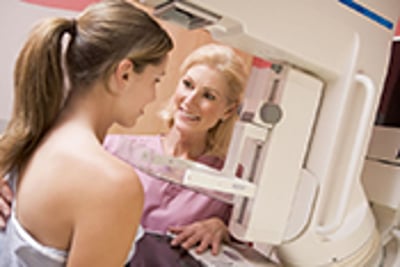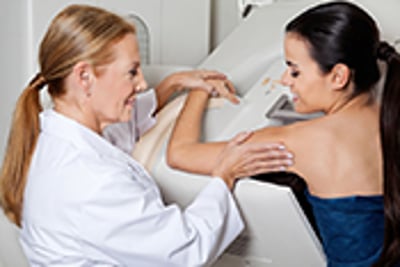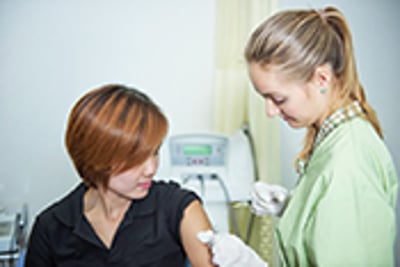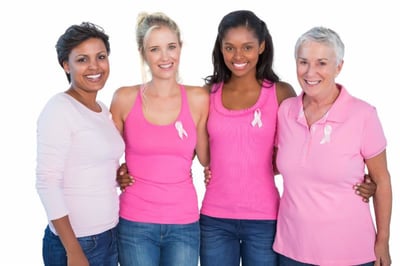FORCE's eXamining the Relevance of Articles for You (XRAY) program looks behind the headlines of cancer news to help you understand what the research means for you.
XRAY is a reliable source of hereditary cancer research-related news and information.
Learn more about the XRAY program
All XRAYs
Relevance: Medium


Strength of Science: Medium-Low


Study : Breast cancers can disappear without treatment: fact or fiction?
Relevance: Medium


Strength of Science: Medium-Low


Most relevant for: Women with abnormal mammograms
Previous studies and news headlines have reported that it is possible for breast cancers to regress or disappear on their own. Is this true? The authors of the current research study show that of 479 untreated breast cancers detected by screening mammography, none regressed or spontaneously disappeared on their own. (9/7/17)
Read More
Relevance: Medium-High


Strength of Science: Medium


Research Timeline: Post Approval


Study : Does aspirin lower a woman’s breast cancer risk?
Relevance: Medium-High


Strength of Science: Medium


Research Timeline: Post Approval


Most relevant for: Women at average risk for breast cancer
Women who take aspirin regularly may have a reduced risk of breast cancer. However, previous studies have reported mixed results. Few of these studies have looked at whether this potential benefit of aspirin is linked to specific types of breast cancer. This study found a small reduction in breast cancer risk for women who took a low-dose aspirin at least three times per week, but only for one subtype of breast cancer. Women who took aspirin were less likely to develop ER/PR-positive, Her2- negative breast cancer, the most common type of breast cancer. This study found no breast cancer risk reduction for women who used regular-dose aspirin or other nonsteroidal anti-inflammatory drugs (NSAIDS). (8/29/17)
Read More
Relevance: Medium-High


Quality of Writing: High


Article : Parents face challenges when deciding the best time to tell children that they may be at high risk for cancer
Relevance: Medium-High


Quality of Writing: High


Most relevant for: Parents who have an inherited gene mutation
When certain types of cancers run in families, genetic testing can determine whether the cause is hereditary. Genetic testing can help family members understand their cancer risk and make medical decisions to stay healthy. A test result can provide significant insight, but it also creates challenges for parents, because gene mutations that cause hereditary cancers can be passed from mothers and fathers to sons and daughters. People with these mutations must make difficult decisions about when to tell their children that they too may have inherited the mutation. (8/22/2017)
Read More
Relevance: Medium


Strength of Science: Medium


Study : Breast cancer rates are rapidly increasing among Asian women in California
Relevance: Medium


Strength of Science: Medium


Most relevant for: Asian American women
The majority of racial groups in the United States have seen declines in breast cancer rates. However, this study provides new insights into the patterns of breast cancer rates in Asian American subgroups in California. Using 26 years of data, this research found that breast cancer is rapidly increasing among this population, contrasting to a decline in rates among non-Hispanic white women in California and nationwide. (8/15/17)
Read More
Relevance: Medium


Strength of Science: Medium


Research Timeline: Post Approval


Study : Do physicians recommend breast cancer screenings based on guidelines?
Relevance: Medium


Strength of Science: Medium


Research Timeline: Post Approval


Most relevant for: Women at average risk for breast cancer
Several guidelines help physicians decide when a woman should begin screening for breast cancer and how often she should be screened. However, are these guidelines put into use in the clinic? (8/8/17)
Read More
Relevance: Medium-Low


Strength of Science: Medium-Low


Research Timeline: Animal Studies


Article : Report on vaccines to prevent hereditary cancer
Relevance: Medium-Low


Strength of Science: Medium-Low


Research Timeline: Animal Studies


Most relevant for: High risk women who have not had breast cancer
On 05/30/2017, Good Morning America aired a segment entitled “Can a vaccine help prevent breast cancer at its earliest stages?” The story outlines the need for cancer prevention and hints at early research into a cancer vaccine. (8/1/17)
Read More
Relevance: High


Strength of Science: High


Research Timeline: Post Approval


Study : New cancer risk estimates for BRCA1/2 mutation carriers
Relevance: High


Strength of Science: High


Research Timeline: Post Approval


Most relevant for: Women with an inherited mutation in BRCA1 or BRCA2
Cancer risk estimates for BRCA1 and BRCA2 mutation carriers are important because they impact patient decision-making. Until now, almost all risk estimates for mutation carriers were based on results of retrospective studies that looked back on mutation carriers who had cancer. This new study is prospective—it followed almost 10,000 BRCA mutation carriers without cancer to see if or when they developed breast or ovarian cancer. The cancer risk estimates of this study may be more accurate because it followed mutation carriers who did not have cancer over time. (7/28/17)
Read More
Relevance: High


Quality of Writing: High


Article : Can your breast cancer come back?
Relevance: High


Quality of Writing: High


Most relevant for:
Elaine Howley’s piece for US News & World Report, “Can My Breast Cancer Come Back?” examines a common misperception that many breast cancer patients have after completing treatment, and explains what can actually occur. (7/25/17)
Read More
Relevance: Medium-High


Strength of Science: Medium-High


Study : Gaps in genetic testing and decision-making for women with early-stage breast cancer
Most relevant for: People diagnosed with early stage breast cancer
Genetic testing for cancer risk is now more affordable and easier to obtain. As a result, many breast cancer patients are tested without ever seeing a genetic counselor. Genetic testing results affect treatment decision making, but they can be confusing, especially if patients do not receive genetic counseling. This study looks at breast cancer patients’ experiences following genetic testing and how testing results affect surgical decision making. (7/14/17)
Read More
Relevance: Medium-High


Strength of Science: Medium


Study : Diet during teen years and early adulthood is linked to breast cancer risk
Most relevant for: Adolescent and young adult women
During teen years, breast tissue grows rapidly in young girls and is more likely to be harmed by substances that are known to cause cancer. Few studies have looked at the relationship between diet during puberty and breast cancer risk. This study looks at how a woman’s diet during their teenage years and early adulthood is associated with breast cancer development later in life. (6/30/17)
Read More